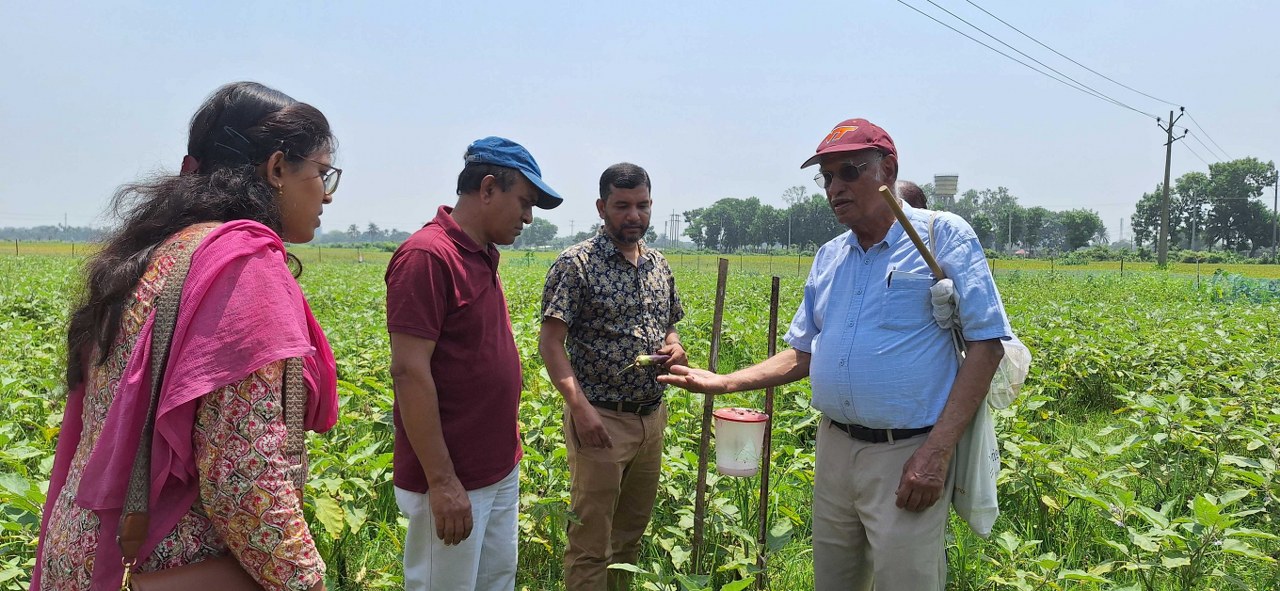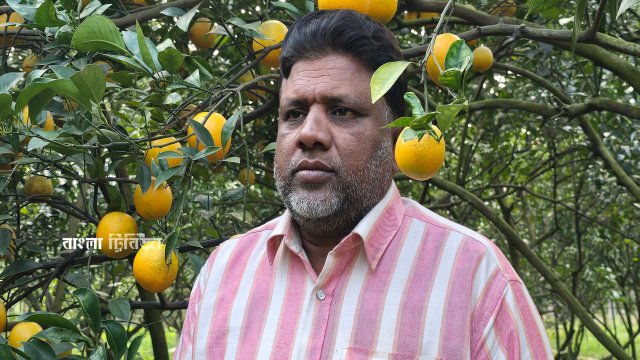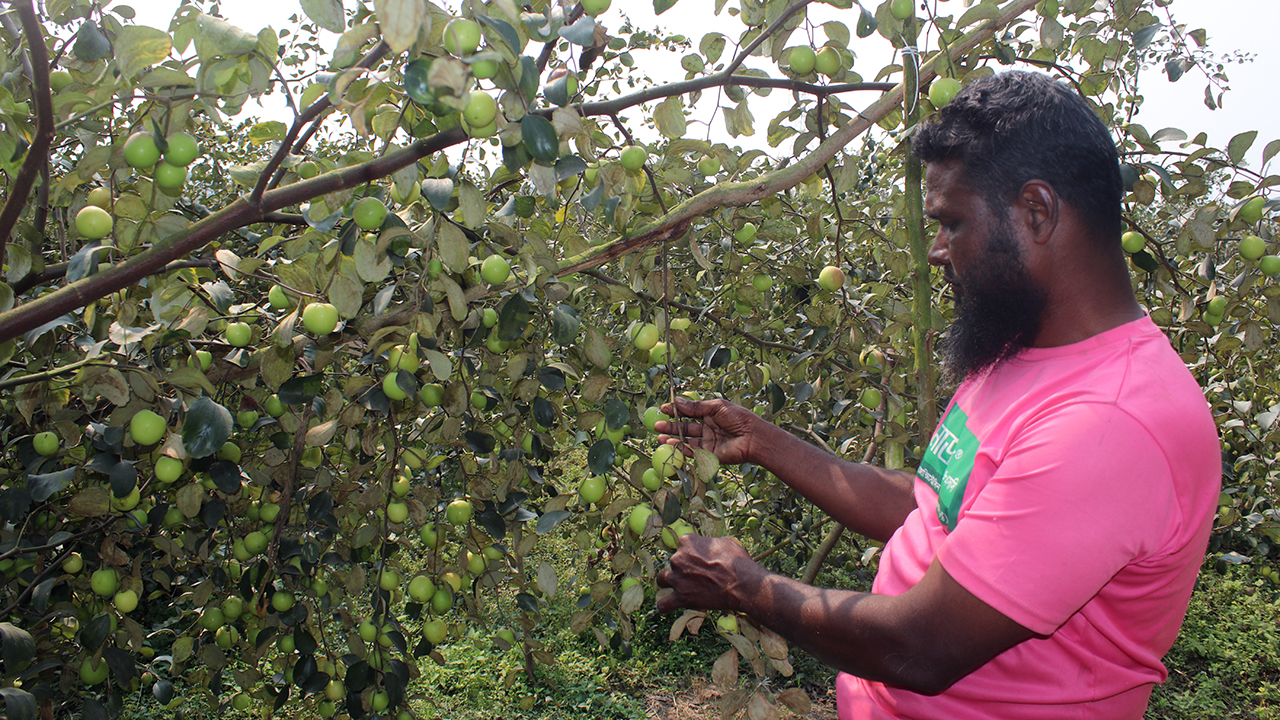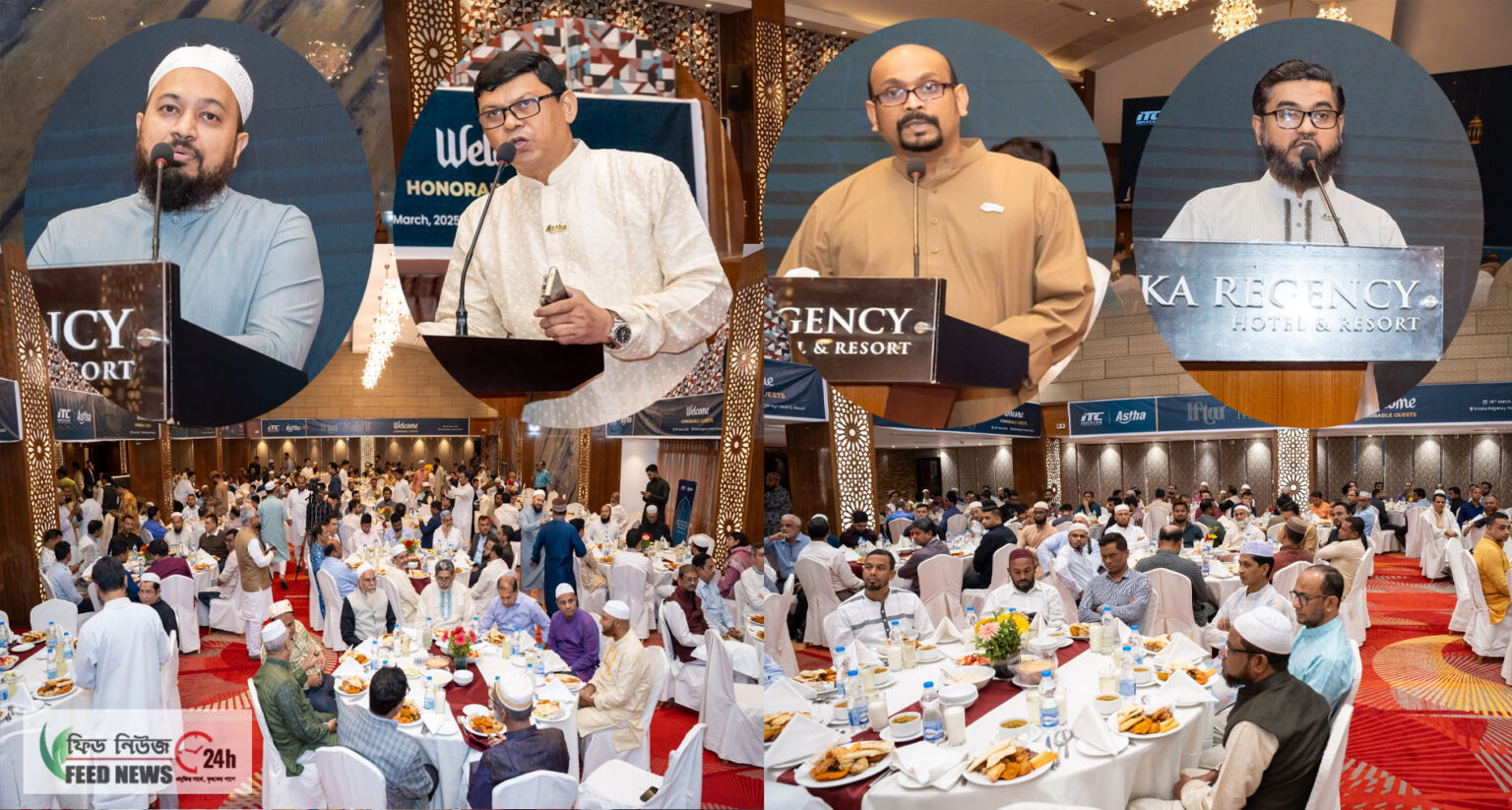Successful eggplant cultivation without pesticides!

- Update Time : Tuesday, April 1, 2025
- 70 Time View
RN Desk: Eggplant (brinjal) is a popular and nutritious vegetable in Bangladesh, ranking as the second most cultivated crop after potatoes. However, farmers face severe infestations from over 36 harmful pests, among which the shoot and fruit borer (Leucinodes orbonalis) is the most destructive.
To combat this pest, Bangladeshi farmers typically spray pesticides two to three times a week, sometimes even twice a day. Despite such heavy pesticide use, crop losses range from 30% to 60%, prompting farmers to increase spraying—often exceeding 100 applications per season. This excessive pesticide use leaves high chemical residues on eggplants, posing significant health risks. Additionally, 35-40% of total farming costs are spent on pesticides and their application. Overuse of pesticides not only harms human health and the environment but also leads to pest resistance, resulting in new pest problems. Hence, an eco-friendly alternative is crucial.
To address this issue, a team of researchers from USAID’s IPM Activity and Bangladesh Agricultural University (BAU) successfully tested the Mating Disruption Technology for pest control.
The Research Initiative
Dr. Mohammad Saifullah, a professor in BAU’s Department of Entomology, shared insights on the study. The research was overseen by Dr. Rangaswami Muniappan, Director of the IPM Lab at Virginia Tech.
Dr. Saifullah explained that the shoot and fruit borer moths lay eggs under leaves, on branches, and flowers. Once hatched, the larvae burrow into the plant’s soft tissues, causing the upper part to dry out and die. When fruits develop, the larvae penetrate the fruit and destroy its internal tissues, making them unfit for sale and consumption. In Bangladesh, this pest can cause up to 86% yield loss.
With financial support from Virginia Tech and USAID, the Feed the Future mission’s Integrated Pest Management (IPM) Activity was implemented to empower Bangladeshi farmers to tackle existing and emerging pest threats in an environmentally friendly manner. The project covered 13 different crops, including eggplant.
Implementation of Mating Disruption Technology
In 2023, IPM Activity and Virginia Tech jointly organized a workshop in Dhaka. Following this, a research project was implemented in collaboration with ATGC, Ispahani Biotech, the Department of Agricultural Extension (DAE), and BAU. The trials were conducted in Magura, Jhenaidah, and BAU research fields.
Mating Disruption Technology is a pest control strategy that confuses insects by disrupting their mating process, thereby reducing their population. It relies on pheromones, which are semiochemicals that insects use for communication.
Dr. Saifullah explained that mating disruption gel was first applied seven days after transplanting. As plants grew taller, it was applied monthly to the plant tops. Since eggplants are cultivated in rows, the gel was applied in alternating rows (e.g., row 1, 4, 7 in the first month; row 2, 5, 8 in the next month).
Apart from the shoot and fruit borer, eggplants also suffer from other pests like whiteflies and aphids. To manage these, organic biopesticides were used. The research involved quadrant sampling, where data was collected from all plants in a designated area. Once the eggplants matured, they were harvested, sorted based on quality, and compared between the treatment (mating disruption) and control (chemical pesticides) fields.
Research Findings
From December 2023 to June 2024, pest infestation levels were significantly lower in mating disruption fields in Mymensingh, Magura, and Jhenaidah compared to control fields.
In Mymensingh, the infestation rate of shoot and fruit borer was noticeably lower in mating disruption fields than in control fields. Similarly, in Magura and Jhenaidah, pest attacks were higher in pesticide-treated fields than in mating disruption fields between December 2023 and June 2024. However, during March-April, pest levels equalized in both fields, indicating temperature as a key factor.
A Profitable & Eco-Friendly Solution
Dr. Saifullah concluded that mating disruption is a cost-effective alternative to chemical pesticides. This Integrated Pest Management (IPM) approach not only increases farmers’ profits but also protects human health, agricultural land, and the environment from harmful chemicals.











